Open internet and inclusive technology
New digital technology and the internet brought with it a promise of equal access to knowledge, openness and connection. Their ubiquity has brought opportunity for progress. However, access to digital technology is vastly unevenly distributed. Technology, especially when relying on artificial intelligence, location and biometric data, can amplify social, racial and environmental injustices. We work to bring back the original purpose of an open internet and enable inclusive, sustainable technologies that work for all and for the greater good.
Filter resources
-
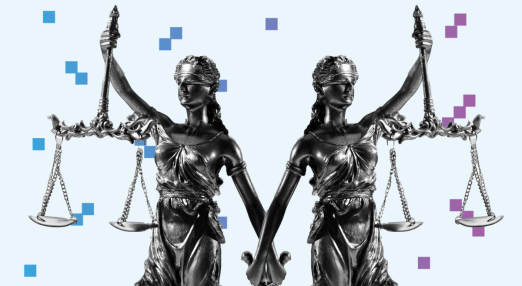
EDRi welcomes EU preliminary findings on TikTok’s addictive platform design
The European Commission preliminarily found that TikTok was in breach of the Digital Services Act (DSA) due to the addictive design of its platform. EDRi welcomes this decision and urges TikTok to swiftly mitigate the risks to which its users are exposed.
Read more
-

EDRi-gram, 4 February 2026
What has the EDRi network been up to over the past few weeks? Find out the latest digital rights news in our bi-weekly newsletter. In this edition: borders, biometrics, billionaires and bots
Read more
-

#DIDit: EDRi members spark movement for alternatives to Big Tech
At the 39th Chaos Communication Congress (39C3), German author Marc-Uwe Kling helped launch the idea of a monthly “Digital Independence Day” with a broad coalition of civil society organisations. On the first Sunday of each month, participants explore alternatives to dominant digital platforms, share experiences using #DIDit, and support one another through volunteer-led online and in-person meet-ups. To date, 189 organisations have joined the initiative, organising over 400 meet-ups.
Read more
-

The EU Commission is gutting net neutrality
The European Commission’s new Digital Networks Act threatens to dismantle nearly a decade of net neutrality protections in Europe. What is being presented as a technical update could actually give politicians control power over the open internet, create paid fast lanes, and weaken independent regulators.
Read more
-

EDRi-gram, 21 January 2026
What has the EDRi network been up to over the past few weeks? Find out the latest digital rights news in our bi-weekly newsletter. In this edition: EDRi’s 2025 year in review, new resource to support an EU spyware ban, DSA delayed in Poland, & more!
Read more
-
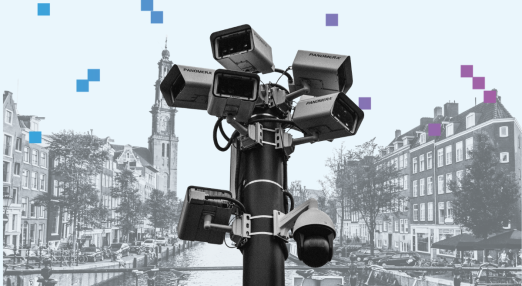
Fighting for algorithmic justice: lessons learned in working closely with affected people
Bits of Freedom shares lessons learned while working on “Amsterdam Top400”, an invasive municipality project which involved the use of predictive policing and led to unwanted interference in the private lives of young people. Together with a coalition of professionals from different background and affected individuals, they explored the possibility of holding the municipality of Amsterdam accountable for violations of children’s rights, data protection law, and fundamental freedoms.
Read more
-
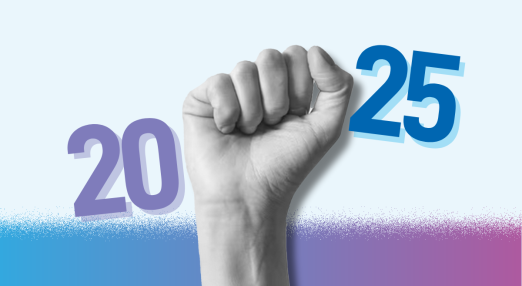
EDRi’s 2025 in review: we resisted, we persisted
As for most civil society organisations, 2025 was a tumultuous and challenging year for EDRi. Shifting political landscapes and shrinking civic space have made the work of civil society in Europe and around the world increasingly difficult for years . Yet we have nevertheless found many reasons to hope, celebrate, resist and persist.
Read more
-

President’s veto further delays the implementation of the DSA in Poland
Poland is among the last EU member states to implement the Digital Service Act. After two years of negotiations between the government and civil actors – led by the Panoptykon Foundation, the Polish NGO protecting fundamental rights in the online context – the implementing act was ready. President’s veto means that the process has to be started afresh.
Read more
-
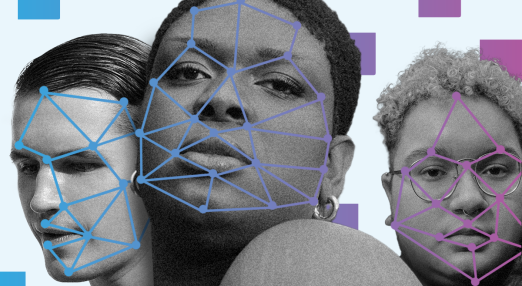
CNAF’s discriminatory scoring algorithm: 10 new organisations join the case before the Conseil d’État in France
10 organisation, including EDRi, have joined an ongoing coalition effort to challenge the discriminatory algorithms used by the family branch of the French welfare system (CNAF). In the current deregulation spree by the European Commission, this legal action represents resistance to the rollback of fundamental rights protections and the increase of rights infringing legislation. Read an update about the strengthened coalition and the legal action they have taken so far.
Read more
-
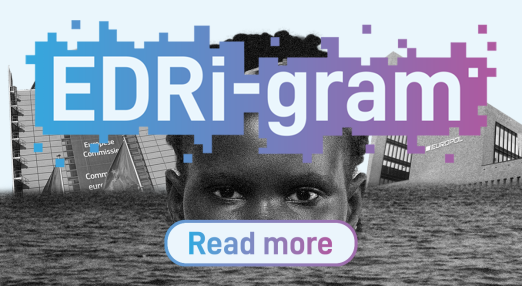
EDRi-gram, 11 December 2025
What has the EDRi network been up to over the past few weeks? Find out the latest digital rights news in our bi-weekly newsletter. In this edition: 2025 might be almost over, but we aren’t done fighting for digital rights
Read more
-
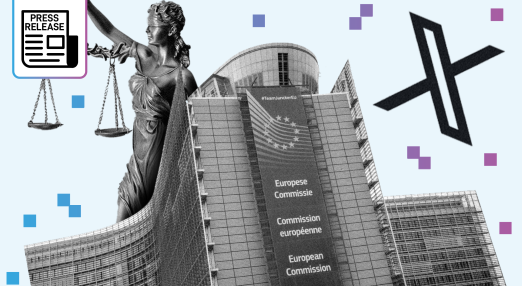
Press Release: EU stands up to Big Tech with €120 million fine to X
The European Commission took aim at X for breaking the DSA, proof that Europe’s landmark law can bite. Despite political pressure and corporate pushback, the EU is showing that online platforms can and will be held accountable for practices that mislead users, cause harm, or undermine democracy.
Read more
-
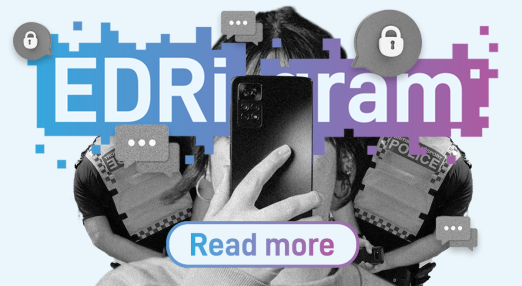
EDRi-gram, 27 November 2025
What has the EDRi network been up to over the past few weeks? Find out the latest digital rights news in our bi-weekly newsletter. In this edition: Digital Omnibus rolls back rights, age verification misses the mark, data workers behind AI, & more!
Read more
